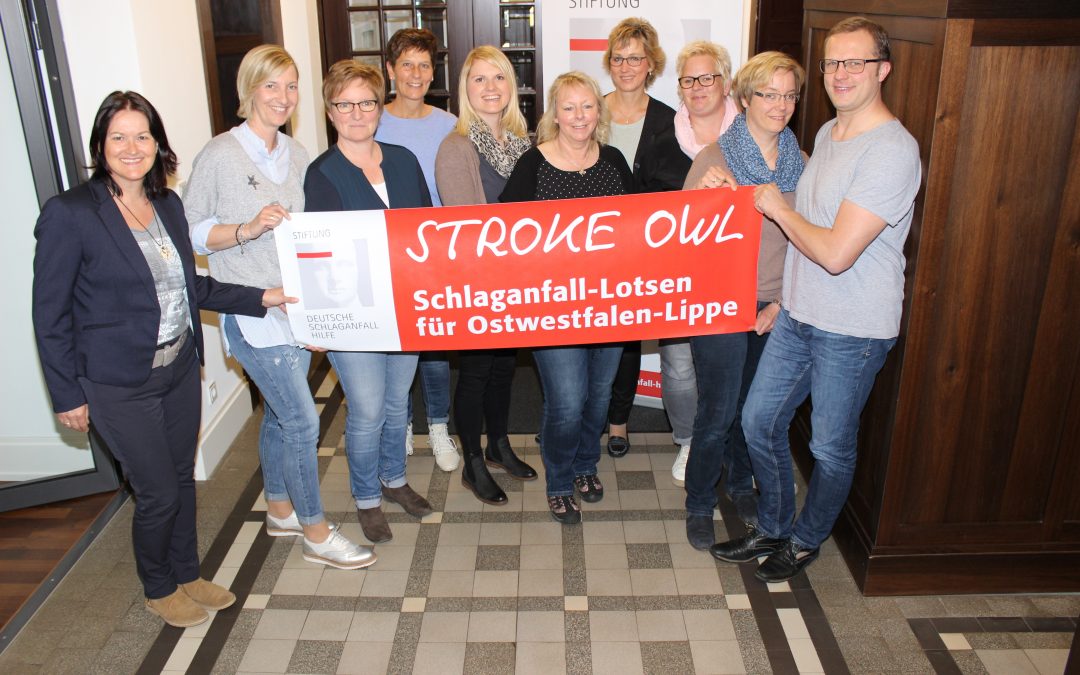The celebrations of the 25th anniversary of the German Stroke Foundation officially ended on its birthday on January 29th 2019. Of course the work on many projects and events continues. Here are some examples.
New Case Manager for children with stroke
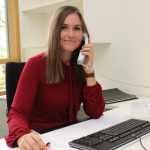 The second “Case manager for children with stroke” (Schlaganfall-Kinderlotsin) was installed at the beginning of the year. Franziska Schroll works at the Schön Clinic in Vogtareuth (Bavaria) and will support families with stroke-affected children in southern Germany. The foundation “RTL – We help children” finances the project for two years.
The second “Case manager for children with stroke” (Schlaganfall-Kinderlotsin) was installed at the beginning of the year. Franziska Schroll works at the Schön Clinic in Vogtareuth (Bavaria) and will support families with stroke-affected children in southern Germany. The foundation “RTL – We help children” finances the project for two years.
The case manager provides information about stroke and helps families to get all the treatments, therapies and social support they need. The other case manager, Marco Vollers, continues his work in Bremen and is responsible for the northern part of Germany.
Seminar for parents
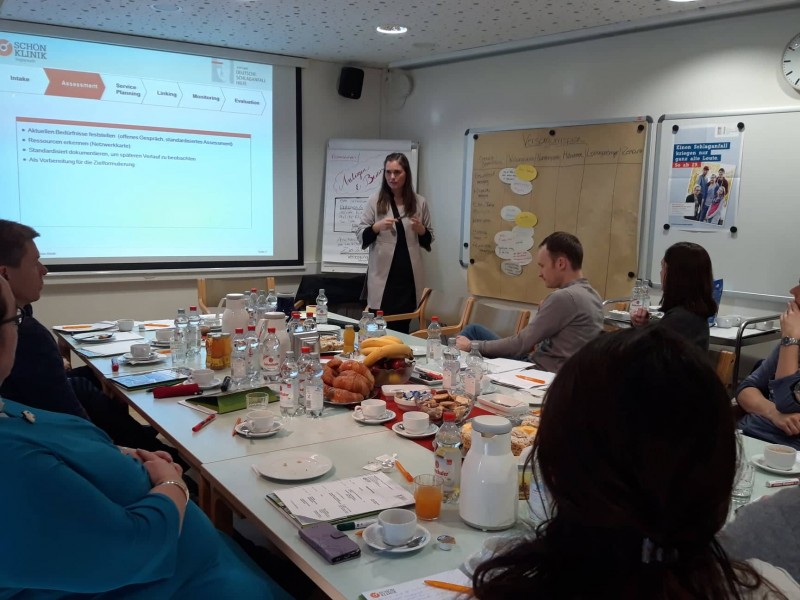
When a child has a stroke, the parents have many questions. Which therapy is best? Which lasting consequences will the stroke have? Will my child need special support at kindergarden or at school? How will the family cope with the difficult situation? Experts answered these questions at a seminar for parents. Parents had the chance to get general information about stroke and discuss their individual situation with doctors and therapists.
Stroke-scan “in jail”
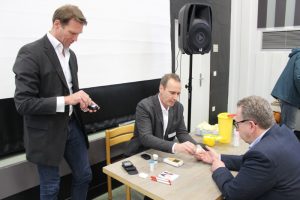
Many people have high blood pressure or diabetes and don’t know about it. This is why the German Stroke Foundation offers to scan the risk of stroke at work. At the beginning of the year the testing took place in a very special location: in jail.
Jail-employees had the chance to test their risk of stroke and discuss stroke prevention. Alexander Leipold, former professional wrestler and ambassador of the foundation, talked about his rehabilitation and motivation after the strokes.
Workshop for leaders of self support groups
The foundation offers workshops for leaders and spokespersons of self support groups. In 2019 they took place in Hamburg, Halle and Zwickau. The participants learn for example about new laws, how to finance their group, how to use social media and discuss many questions. The workshops help them to be up to date and pass important information on to the other group members.
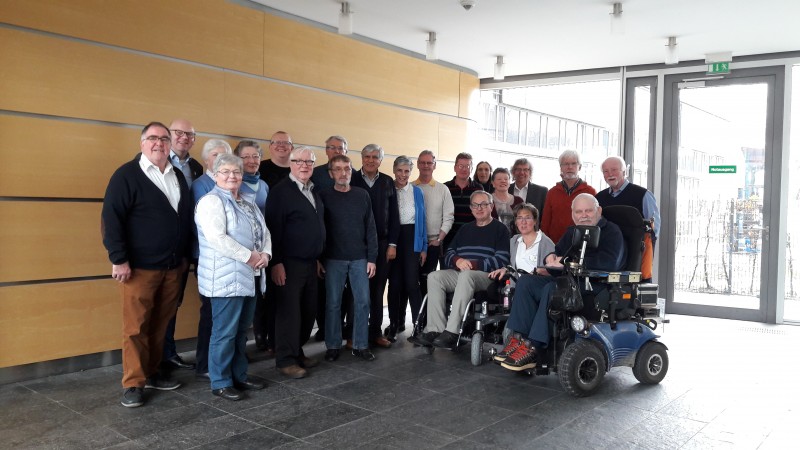
Case Management Symposium
The project “STROKE OWL” is continuing successfully. Professional case managers support stroke survivors in the region Ostwestfalen-Lippe (OWL = East part of Westphalia covering 2 million inhabitants) for one year.
With this project the foundation wants to proof that a close support after the stroke can improve the quality of life of stroke patients and reduce the risk of further strokes. 1,5 years into the project the foundation organised a symposium for case management experts to discuss the outcomes and challenges to date.
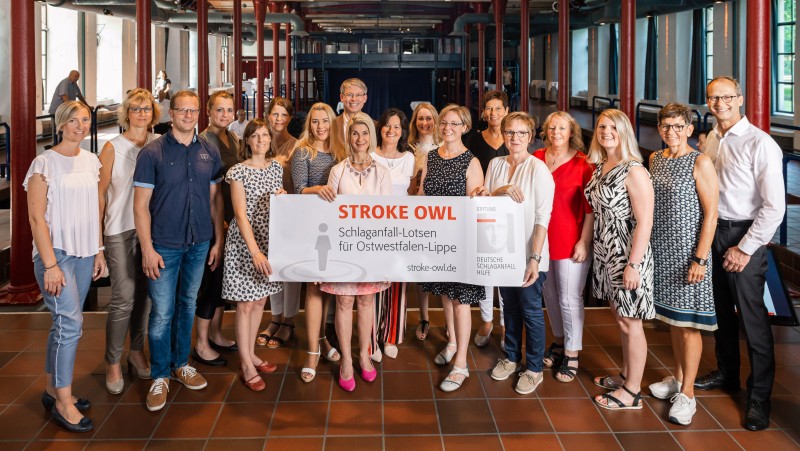
Stroke in daily soap
“Unter uns”, a popular German daily soap on RTL-television, picked up stroke as a topic in the storyline. One of the main characters gets a stroke and suffers from paralysation and aphasia afterwards. The foundation supported and advised the crew. Actors visited the foundation and spoke to stroke patients to prepare for their roles and employees of the foundation gave advice on the script.
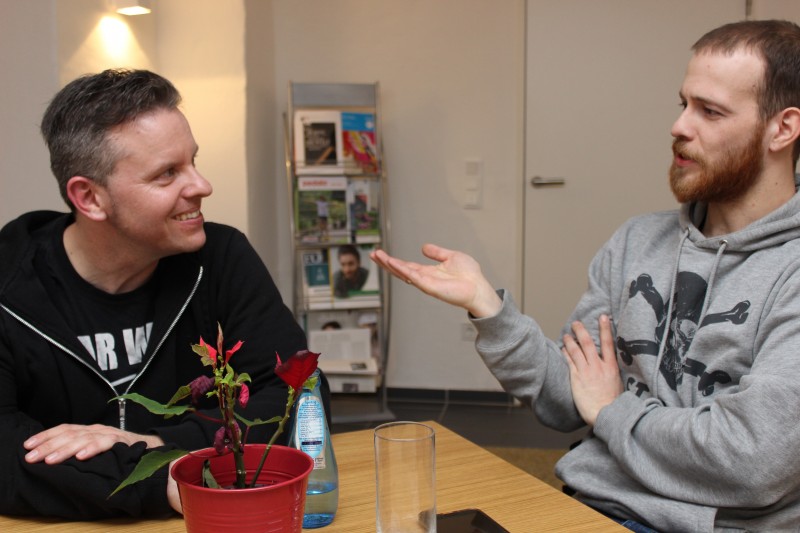
Photo: Stroke survivor Sascha Stachorra (left) helps actor Patrick Müller to prepare for his role.
Volunteer stroke-helpers
Volunteer stroke helpers support stroke survivors in their every day life. For example they get groceries together, accompany them for a walk or play board games. More and more people are interested in working as a volunteer in this field. This is why the foundation supports courses of instructions all over Germany. Local partners help organising the project, which is now offered in twelve regions.
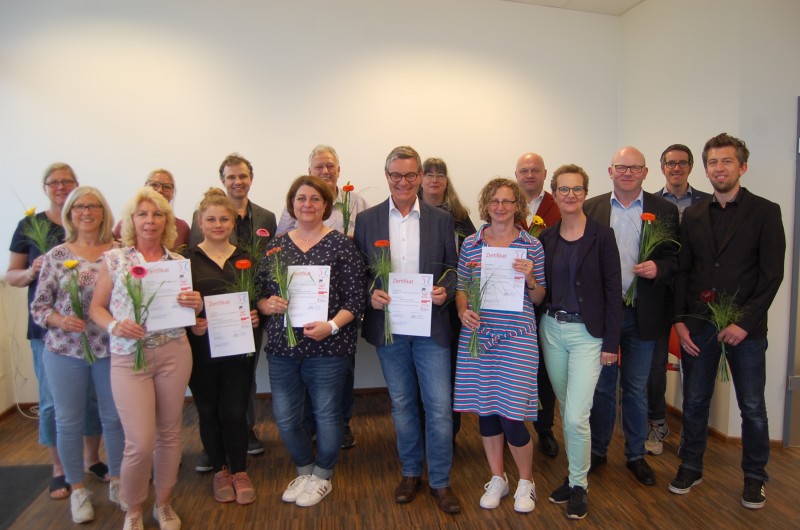
Day against stroke
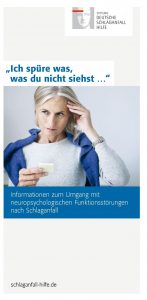 The national “Day against stroke” on May 10th is one of the most important days for communication about stroke related topics. The motto in 2019 “I feel something you can’t see…” is based on the German name of the child’s game “I spy with my little eye.”
The national “Day against stroke” on May 10th is one of the most important days for communication about stroke related topics. The motto in 2019 “I feel something you can’t see…” is based on the German name of the child’s game “I spy with my little eye.”
Main goal was to focus on the unseen consequences of stroke like difficulties to recall information or to concentrate, neglect, visual field fail and emotional changes. Many newspapers, TV- and radio stations reported about the topic and it was successfully spread across social media. #Taggegendenschlaganfall (#dayagainststroke) made it into the top 10 hashtags on twitter in Germany for the first time.

